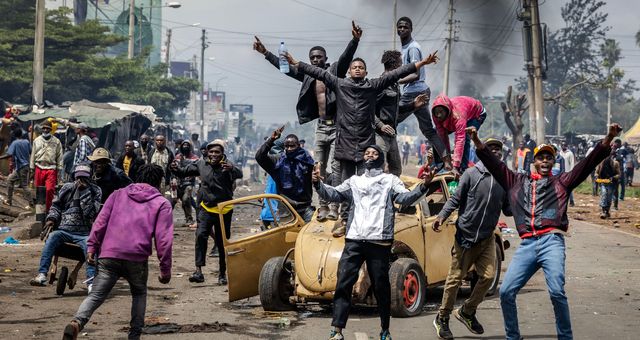Kenya has always been a country that values democracy, peace, and civic participation. Recent youth-led demonstrations, while a reflection of genuine economic concerns, have taken a concerning turn. This turn risks undermining the very democratic freedoms that allow such protests to take place. It is at moments like this that we must pause and reflect. Are we protecting our country or putting it at risk?
Across the country, many young Kenyans have come out in protest. Their voices are strong, their numbers significant, and their concerns real. Many are questioning policies, demanding reforms, and calling for greater inclusion in national decision-making. The government has listened. The withdrawal of the 2024 Finance Bill is proof that this administration is responsive and committed to dialogue. That decision reflects maturity and a willingness to listen, even when the message is difficult.
However, a worrying trend has begun to emerge. The right to protest has been abused by some to justify destruction of property, attacks on police officers, vandalism of public institutions, and the spread of violent incitement. These are not expressions of patriotism. They are threats to national stability. There is a difference between demanding accountability and rejecting lawful authority. There is a difference between peaceful protest and anarchy.
Security analyst have reported how quickly countries can move from protest to paralysis. The shift often begins when the rule of law is undermined, when citizens trust in constitutional institutions wanes, and when violence is treated as an acceptable form of expression. Extremist elements, both local and international, often look for exactly these conditions. They exploit unrest to push radical ideologies and recruit vulnerable youth. That risk must not be ignored.
To its credit, the government has continued to show restraint and professionalism. Security agencies have a task of protecting life and property while allowing room for peaceful expression. The aim is to allow the youth to air their frustrations while safeguarding the nation from slipping into chaos. Public order is essential for peace, development, and democratic growth.
It is also important to acknowledge what the state is doing for young people. The Hustler Fund, increased support for vocational training, digital innovation hubs, youth enterprise programs, and the continued push to create a more inclusive economy are all steps in the right direction. These initiatives may not fix everything instantly, but they show commitment to long-term solutions.
The youth of this country are not the problem. They are part of the solution. Their energy, creativity, and courage are what drive change. However, that energy must be guided. It must be channeled toward building, not destroying. There is nothing revolutionary about burning schools, looting shops, or attacking officers who are doing their jobs.
Families, religious leaders, educators, and online influencers must help shape the national conversation. They must encourage responsible action and teach that real power lies in discipline and strategic thinking. The future will not be built by those who tear down the present. It will be built by those who are bold enough to rise above emotion and lead with purpose.
The media has a national responsibility as well. This is not the time for sensational headlines or unverified content. It is a time for balance, accuracy, and peace-driven reporting. What is published or aired has real impact. It shapes public opinion and influences the perceptions of those on the ground.
Digital spaces must also be used with care. Social media has empowered the youth, but it has also become a source of misinformation, fear mongering, and incitement. There are growing cases of people hiding behind pseudo anonymous accounts to encourage rebellion and spread falsehoods. This trend must be addressed through responsible digital citizenship and stricter content moderation.
Kenya is a democratic nation. In a democracy, protest is a right, but so is order. We must learn how to demand reforms without destroying our institutions. The youth have been heard. Now is the time to shift from protest to participation. There is space to lead, space to influence policy, and space to contribute to lasting national transformation.
